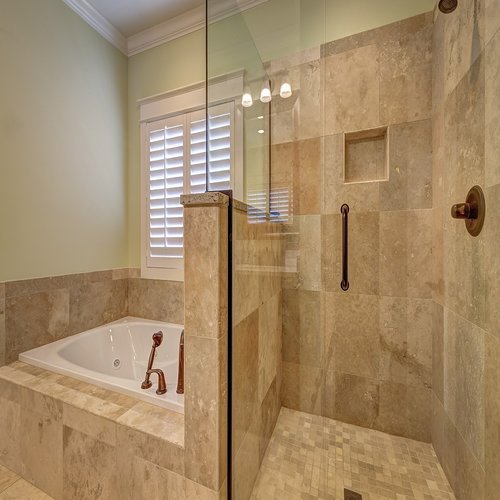Bathroom leaks are very common and widely experienced these days. Damp spots or worse, visible droplets of water coming down from the ceiling are signs of a ceiling leak. Such bathroom leaks are potential problems if you have a second story bathroom (for bungalows) or if you have a neighbour upstairs (HDBs or condos). So, what are some of the common causes?
Water Pipes – Pipes may cause bathroom leaks if they are old and worn off. Overtime, pipes may rust and eventually give in to the water pressure and burst, thus causing a leakage. If the pipes are concealed within the walls, it may take some time for the leak to be noticed. If the leak is severe, symptoms should be visible in a short course of time.
Tiled walls – Bathroom leaks may also be caused by tiles. The cause of this problem is mostly related to the tile grout. Standard powdered grout is not waterproof as it is slightly porous and allows moisture to be absorbed. More ideally, epoxy grout should be applied in showers. The solution would be to rake out existing faulty grout and re-apply a waterproof formulation, followed by sealing up the finished grout with a grout sealer.
Floor tiles – This is the most common cause for ceiling leakages. Similar to tiled walls, floor tiles usually cause leaks when the grouts have worn off. For this problem, owners can opt for clear penetrative waterproofing treatment, a penetrative waterproofing chemical solution that is specially made for a non-invasive, no drilling and effective approach to waterproof and ensure water tightness of substrates. The chemicals can penetrate and react with the substrates to create a waterproofed layer and prevent water ingress on the floor tiles.
Unfortunately, if you live in a penthouse, mansionette or bungalow, you will be solely responsible to resolve such issues. If you live on the upper most floor (depending on whether it’s a HDB or condo), either your respective town council or condo management will be responsible to resolve such issues for you. Do not panic when met with bathroom leaks. Always contact a waterproofing specialist and arrange for an inspection immediately.



